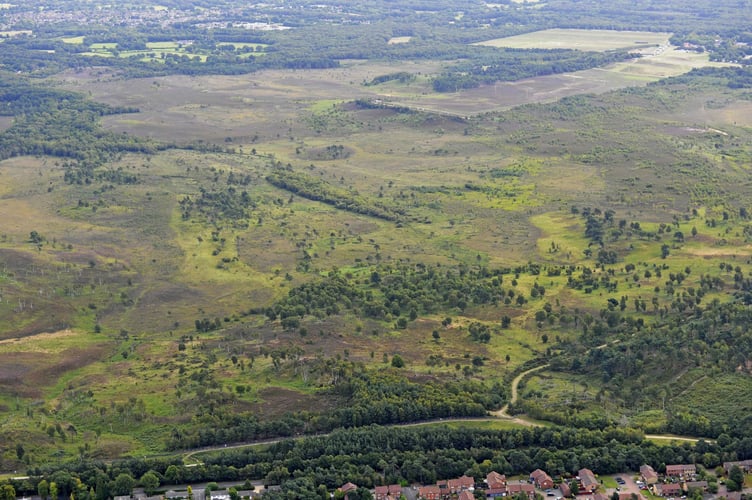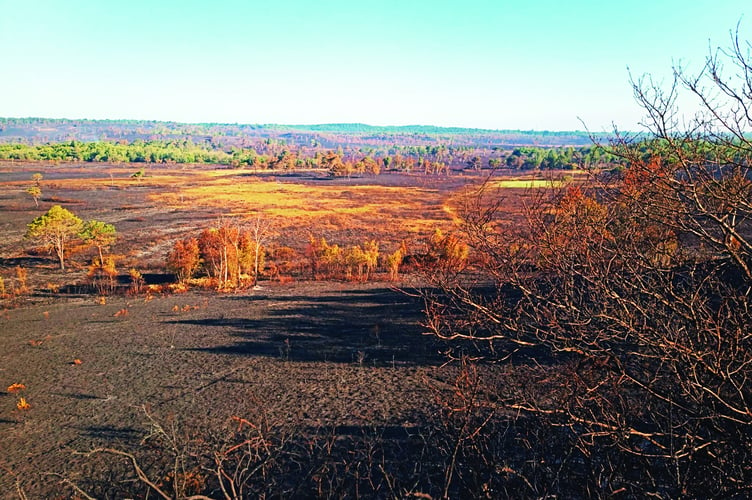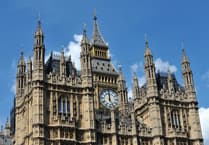SURREY Wildlife Trust (SWT) has launched a fundraising campaign to restore the rare heathland at Pirbright Ranges, after a recent wildfire had a devastating effect on the precious habitat.
Last month’s fire, which saw patches of ground continue to burn for three weeks, severely damaged 668 hectares of local heathland – home to many rare and threatened species, as well as a herd of more than 200 red deer.
“Wildfires have put Surrey on the front line of the climate and nature emergency – and we urgently need extra support to meet the challenge,” said SWT’s director of reserves management, James Herd.
“While the heathland will regenerate over time, it is likely to be eight to 12 years before it returns to full health. The deer will perform a unique and irreplaceable role in this. All donations we receive will go directly to ensuring their welfare and the continuing safety of Surrey’s heathlands and their unique plants and animals.”

Pirbright Ranges is owned by the Ministry of Defence. For safety reasons, it is not accessible to the public. The herd of red deer that grazes the site is owned and managed by SWT. Grazing the heathland prevents scrub, including Scots pine, common gorse and silver birch, from taking over the site, allowing slower-growing dwarf scrub and specialist heathland plant species to flourish. This creates the foundation of the unique and threatened heathland ecosystem.
Following the fire, hundreds of metres of fencing and heavy-duty sleepers that keep the deer safely on site needs replacing. In addition, the ongoing welfare of the herd will depend on regular vet checks and inspections by SWT staff.
The immediate impact of the fire also includes the potential loss of hundreds of recently fledged rare ground-nesting birds including European nightjars, Dartford warblers and woodlark which may have been too young to fly away from the fire.

The damage to the site will prevent their parents from nesting a second time this year and will change the availability of suitable nesting sites for years to come. Reptiles like slow worms, grass snakes and adders would have been unable to escape the fire, perishing alongside the many invertebrate species, including endangered heath tiger beetles that inhabit the remaining heathland fragments in the southeast of England.
James added: “With the help of local people, we will do all we can to explore what more can be done to protect our natural heritage as weather patterns change. It’s vitally important that people in Surrey can continue to reap the benefits of diverse and healthy ecosystems.”
Around 85% of heathland in the UK has been lost over the past 150 years through agriculture, development and changes in land management. SWT manages several areas of heathland – including Chobham Common National Nature Reserve and Wisley and Ockham commons – that are particularly susceptible to fire in dry conditions.
The trust believes strain on resources in the years ahead are set to be severe for those who protect these diverse habitats, and hope to raise £40,000 from the appeal.
For more details, visit www.surreywildlifetrust.org/wildfire-appeal.

.jpeg?width=209&height=140&crop=209:145,smart&quality=75)


